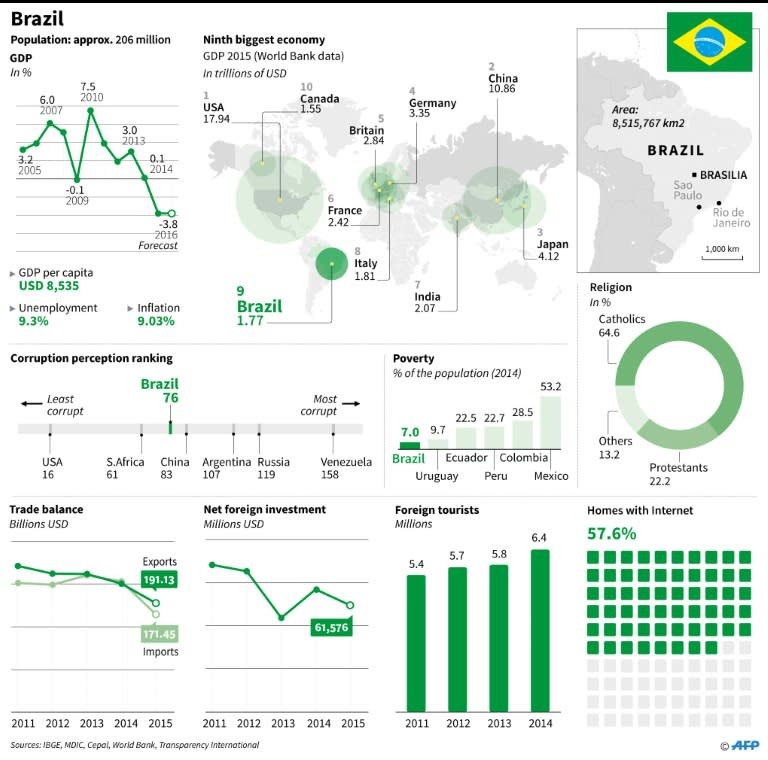Supporters of Brazil's Rousseff insist she broke no laws
The final witnesses in the defense of suspended Brazilian president Dilma Rousseff have testified in her senate impeachment trial, days before a vote that could permanently remove her from power. Rousseff, 68, is accused of taking illegal state loans to help bridge budget shortfalls and mask the true state of the economy during her 2014 reelection campaign. The one-time Marxist guerrilla, who was imprisoned and tortured under Brazil's military dictatorship in the 1970s, says the charges against her are trumped up and amount to a right-wing coup. Testifying late Saturday on the third day of the impeachment trial were former economy minister Nelson Barbosa and Rio State University law professor Ricardo Lodi. Both testified that Rousseff -- suspended from office in May -- did not break the law or harm the economy, which is now in deep recession. "There is no basis to say that the president is criminally responsible," Barbosa said. He insisted that decrees that Rousseff issued at the time were fully constitutional. "There is nothing remotely illegal," Barbosa said. "You cannot act retroactively with a new interpretation of the law." The same argument was delivered Friday by a first batch of witnesses testifying on Rousseff's behalf who said that such budget maneuvers have long been common practice, and that Brazil's economic decline was entirely unrelated. - Rousseff to testify - Rousseff's accusers laid out their case on the trial's opening day Thursday, arguing that she was criminally irresponsible and helped run once booming Brazil into the ground. Brazil's economy shrank 3.8 percent in 2015 and is forecast to drop a further 3.3 percent this year, a historic recession. Inflation stands at around nine percent and unemployment at 11 percent. Tension is building ahead of Monday when Rousseff, from the leftist Workers' Party, will take the stand for the first time and face her accusers. She will be accompanied by her mentor and predecessor in the presidency, Luiz Inacio Lula da Silva. Lula rose from poverty to found the Workers' Party and become one of Brazil's most popular presidents ever before helping Rousseff take his place. The once all-powerful pair are now demonized by the right, blamed for Brazil's economic shambles and tainted by the revelation of a gigantic corruption scheme at state oil giant Petrobras which peaked during the Lula presidency. Lula's presence and Rousseff's allegations of a plot to destroy 13 years of Workers' Party rule will make for a charged atmosphere in the deeply divided Senate where a shouting match broke out Friday, forcing the session to be suspended. Final arguments will follow Rousseff's testimony, then the voting session, which will include speeches by each senator, with the final result expected Tuesday or Wednesday. Two thirds or 54 out of the 81 senators must vote for impeachment to force Rousseff's immediate removal. The latest estimates by opposition senators and major Brazilian newspapers is that the pro-impeachment side is on track to win. Acting president Michel Temer -- Rousseff's former vice president turned bitter enemy -- would then be sworn in to occupy the post until 2018 elections. Since taking over the temporary job Temer has installed a new center-right cabinet with a market-friendly message.




